Are you planning to install a radiant barrier to help with your home insulation, but you're concerned that it will cause problems with your WiFi, cellphone, and TV reception? That's what we will discuss today. We've asked the experts about the possible effect of radiant barriers on your home's signal reception, and here's what they have to say.
A radiant barrier would not cause issues with your WiFi, cellphone, and TV signals. It isn't made of thick metal and it won't cover a huge surface area in your home. That's why radio wave signals can still penetrate your home and allow you to enjoy clear reception for your devices.
Keep on reading so we can explain further why this metal sheet won't significantly affect the signal reception in your home. We'll also tell you how radiant barriers work, how long they last, how much it'll cost to have one installed on your roof, and if it works without insulation. Let's get down to business!
![Silver foil radiant barrier on ceiling roof house, Does A Radiant Barrier Block Reception? [TV, Cell, And Wifi]](https://hvacseer.com/wp-content/uploads/2022/02/Does-A-Radiant-Barrier-Block-Reception-TV-Cell-And-Wifi-683x1024.png)
Radiant Barriers and Signal Reception
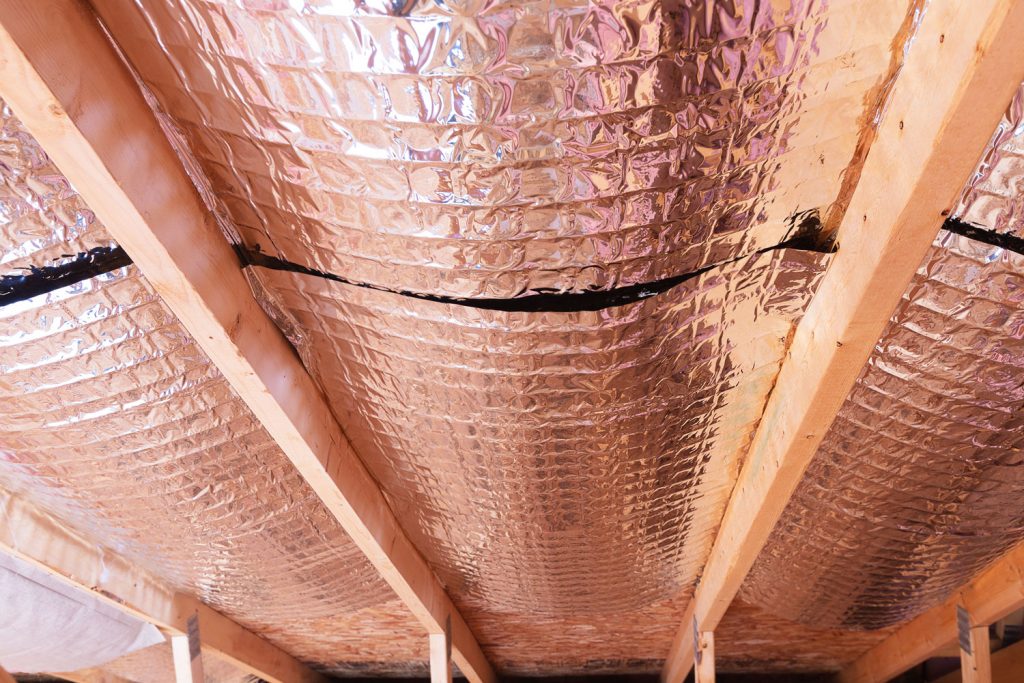
Metal is used for various purposes in our homes. One such example is the foil radiant barrier which is used to reduce the amount of heat that enters our homes. But you might have heard somewhere about metal affecting radio wave signals.
The main concern here is that using metal such as aluminum could affect your signal reception. When there's a poor signal, you won't be able to get clear reception on your devices that depend on communication technology such as your radio, TV, mobile phones, and internet connection.
That would really be a problem since you won't be able to receive calls and text messages on your phone, watch exciting shows on TV, listen to your favorite songs on the radio, or access the internet for the latest news and other important information. In other words, you'll be excluded from what's happening in the outside world.
The signals for our TVs, cellphones, and WiFi are sent to us through radio waves. These are a type of electromagnetic radiation that's used in communication technology. They are the reason why we are able to see images and hear sounds from these devices.
There are different ways to block radio waves in your house but putting foil radiant barriers isn't one of them. While it is true that radio waves will have a hard time penetrating metals, there are also other factors that'll determine how effectively metals can block these signals.
These factors include:
- The thickness of metal - The thicker the metal used, the more effective it'll be in blocking off radio waves. Foil radiant barriers are just 3 to 5 mils (thousandths of an inch) in thickness which isn't enough to shut off electromagnetic signals.
- Surface area - Since you'll just be installing radiant barriers in certain portions of your house (most likely your ceiling or attic), there are other areas where radio wave signals can still pass through.
Because foil radiant barriers aren't thick enough and they won't be covering your entire house, they won't affect your home's signal reception. Your roof only covers around 20% to 35% of your home's surface area. That means the radio wave signals can still penetrate through other areas such as the walls of your house.
It is also important to note that most modern devices come with stronger antennas that can handle signal interference issues so you don't have to be bothered about poor reception.
What is a radiant roof barrier and how does it work?
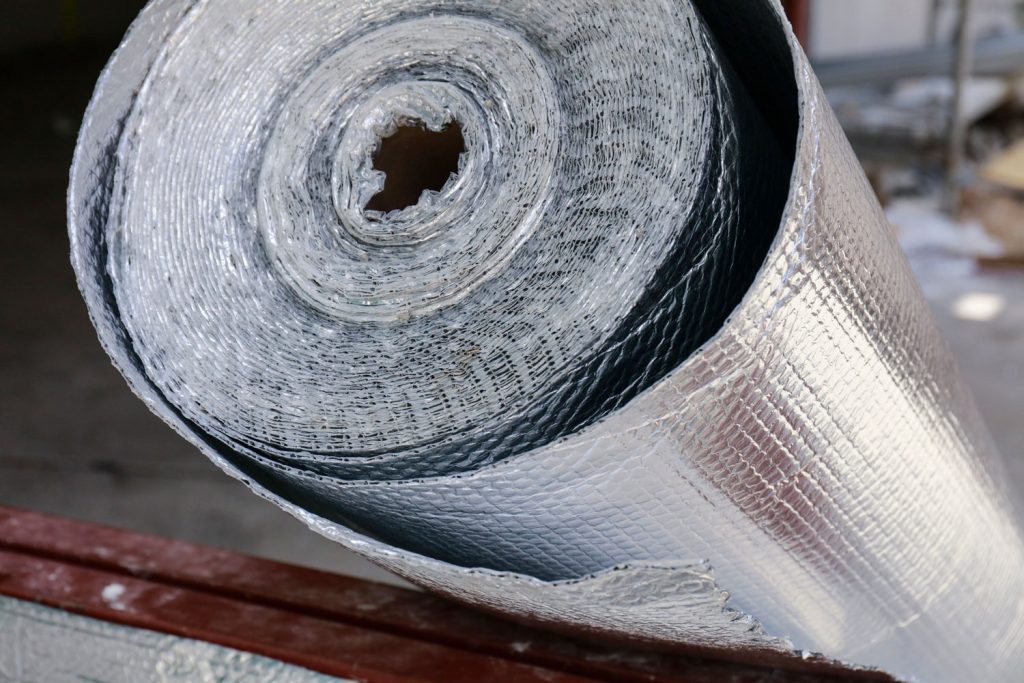
A radiant roof barrier is a metal sheet that's made of a highly reflective material such as foil. It is used to help homeowners save on energy costs by reducing the amount of heat gain inside the house. Since minimal heat gets through, you won't have to let your cooling systems work as hard to make the temperature inside your house more comfortable especially during the hot summer months.
Radiant roof barriers make homes cooler by reducing heat gain through radiation or that coming from the sun. The roof primarily catches the sun's rays and the radiant energy coming from the sun makes it hot. Without a radiant barrier, heat will be transferred through conduction to adjacent portions of the house.
Because of its highly reflective surface, the radiant barrier reflects the heat back to its outside source. This means the heat doesn't enter the house. Ideally, there should be no heat gain.
For this heat barrier to be effective, it should be facing an air space. The gap is where the radiant heat will be transferred. If there is no air space, the aluminum will conduct heat instead and make your home hotter.
It would also help if the radiant barrier is free of dust and other unwanted particles on its surface. Dirt will cover parts of its reflective surface which reduces its efficiency in throwing heat back to its outside source.
According to experts, radiant barrier foils have a reflectivity of 97% which means only 3% of the heat coming from the sun passes through this material. This is beneficial to those living in warm and sunny climates. It reduces the energy cost by up to 10% since you won't have to use your cooling system that much.
How long does a radiant barrier last?
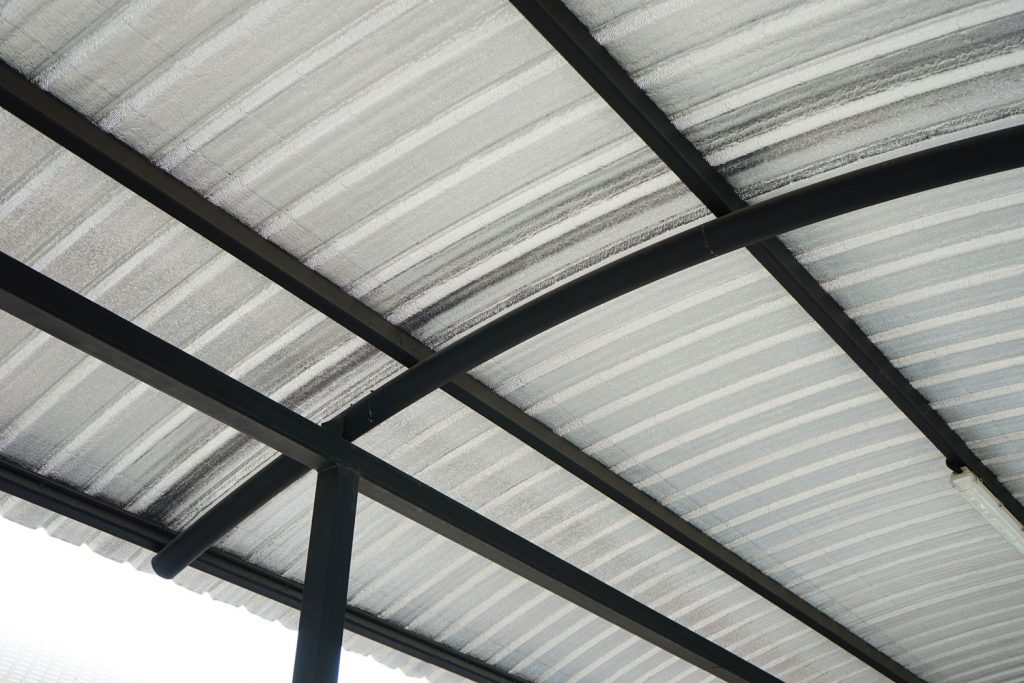
Radiant barriers are a popular choice for home energy-saving solutions because of their durability. They have an estimated life expectancy of 10 years and more.
The number of layers that a radiant barrier has doesn't determine its strength though. It's all about the quality of the product. It also comes with a scrim layer at the center to enhance its durability against extreme temperatures.
Many homeowners have attested to using these materials and they haven't experienced any issues with their foil radiant barriers even when they were installed more than a decade ago.
This makes radiant barriers cost-effective and worth your money. They last for a long time, you're more comfortable inside your home, and you get to enjoy great savings on your energy costs especially during summer.
How much does it cost to have a radiant barrier installed?
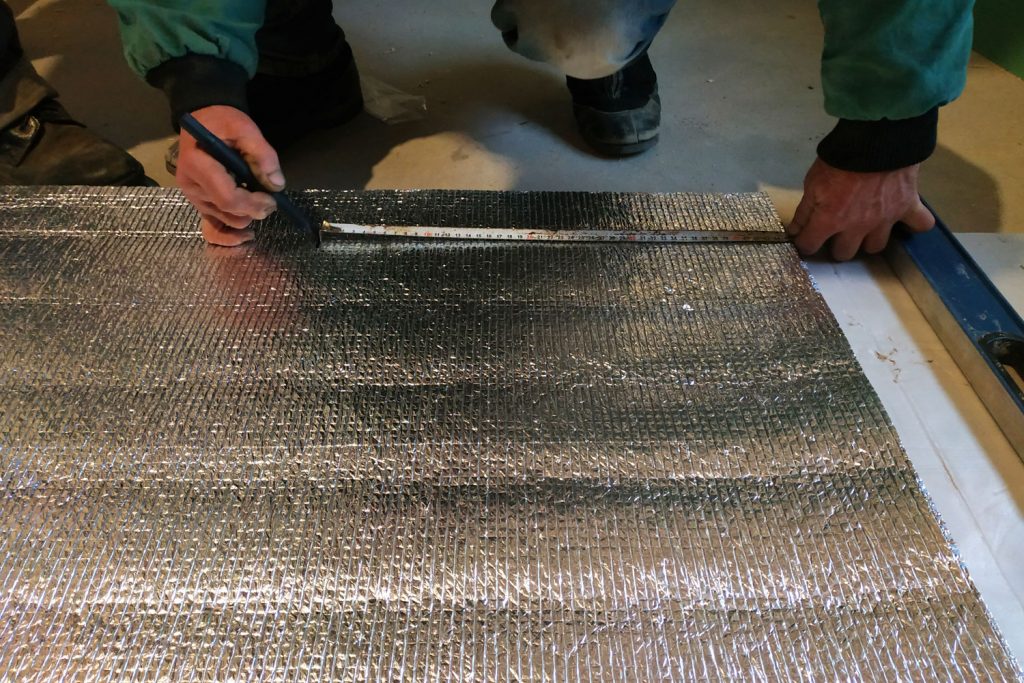
The average cost of radiant barrier installation is $1,700. It can go as low as $740 or as high as $2,840 depending on the size of the space where you'll be installing it. Other important factors that would impact the total cost are labor, type of radiant barrier, and location of insulation.
If you're going to use a double-sided foil radiant barrier, expect the price to be higher than the one-sided heat barrier. The average price of a one-sided barrier is $0.10 to $0.25 while double-sided ones usually cost $0.90 per square foot.
The larger the area that your radiant barrier will have to cover, the higher the cost will be. Also, the price increases as the job becomes more complex.
It is recommended to hire a professional to install your radiant barrier. But you can also opt to do the job yourself if you've got the skills for it, especially if you're just laying it over existing insulation. This will help you save a lot on labor costs which can range from $30 to $80 per hour.
Does radiant barrier work without insulation?
Radiant barriers and insulation are two ways of protecting your home from changing weather conditions. They both help ensure that the temperature inside your house is kept at a comfortable level with minimal cost to your HVAC system.
However, these two materials work differently. Radiant barriers reflect heat coming from the sun so that they won't have the chance to get inside your home. They block off the heat and prevent it from entering your home.
On the other hand, insulation materials resist and slow down the flow of heat out of your house. Heat can still enter (or get out) but it penetrates different portions of your home more slowly.
Since they have different functions, it would be best that you use a radiant barrier on top of whatever kind of insulation you have installed for your home. This will ensure that the 3% of the heat that is able to escape from the radiant barrier will be absorbed by the insulation material and won't significantly affect the temperature inside your home.
With both materials, you have a very strong line of defense against heat and would minimize the heat gain in your home effectively. As such, your HVAC system won't have to work overtime to ensure that the temperature is within your comfort level. This means you'll spend less on energy costs and will see a reduction in your monthly electricity bills.
Final Thoughts
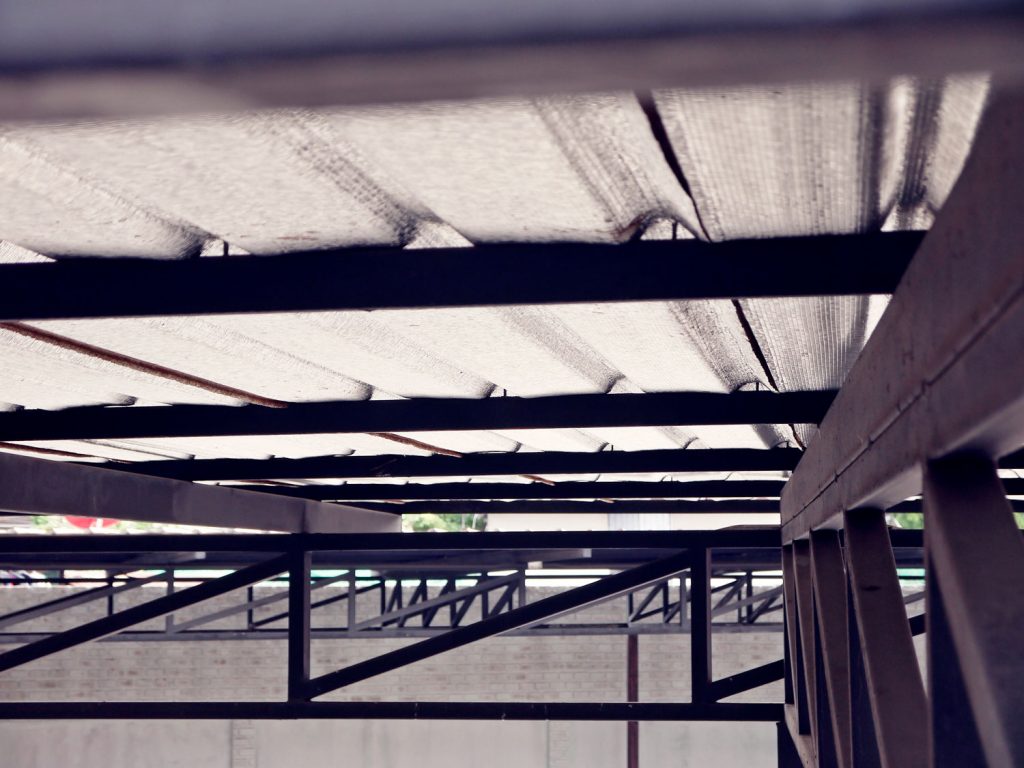
Don't hesitate to install a foil radiant barrier on your roof. It is cost-effective as you'll enjoy savings on your electricity bills, you'll have a cooler home, and it won't significantly affect your cellphone, WiFi, and TV reception.
If you want to know more about home insulation, you may visit the following posts:
